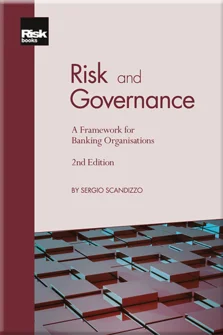Drawing Boards: Motivations and Responsibilities in the Boardroom
Introduction: The Confluence of Risk and Governance
Corporate Governance, Information and Control
The Nature of Corporate Governance in Banking
Regulation and Governance
The Centrality of Risk Management
The Mission, Organisation and Governance of Risk Management
A Cartography of Banking Risks
Operations Risk in Extreme Market Conditions
Managing Legal Risk
Managing Reputation Risk
Drawing Boards: Motivations and Responsibilities in the Boardroom
Executive Compensation: Performance, Regulation and Ethics
Fair Value, Auditing and Internal Controls
Risk Management and the Role of Culture
The Board of Directors
Compensation
Auditing, Reporting and Disclosure
No kind of professional engagement has undergone the level of scrutiny devoted latterly to that of a director on the board of a large bank. Nevertheless, the rationale underlying the centrality of boards, let alone the priorities they should follow in fulfilling their duties, are far from clear-cut. The financial crisis has provided a treasure trove of opportunities to test the impact of boards on the performance of banks but, despite the large number of scholarly studies, there is inconclusive evidence that such impact was material. Regardless, regulators and legislators have produced extensive new rules and by-laws aiming at improving the ability of boards to monitor and, when necessary, restrain the risk-taking activities of banks. The key requirements are that board members are competent, knowledgeable, authoritative, independent and free from conflicts of interest. This chapter will look at how realistic such demands are, and at what can be done in practice.
WHY BOARDS EXIST
The issues surrounding the composition, activities and duties of the board of directors constitute by far the most central concern in corporate governance, and dominate both scholarly treatment and
Copyright Infopro Digital Limited. All rights reserved.
As outlined in our terms and conditions, https://www.infopro-digital.com/terms-and-conditions/subscriptions/ (point 2.4), printing is limited to a single copy.
If you would like to purchase additional rights please email info@risk.net
Copyright Infopro Digital Limited. All rights reserved.
You may share this content using our article tools. As outlined in our terms and conditions, https://www.infopro-digital.com/terms-and-conditions/subscriptions/ (clause 2.4), an Authorised User may only make one copy of the materials for their own personal use. You must also comply with the restrictions in clause 2.5.
If you would like to purchase additional rights please email info@risk.net











